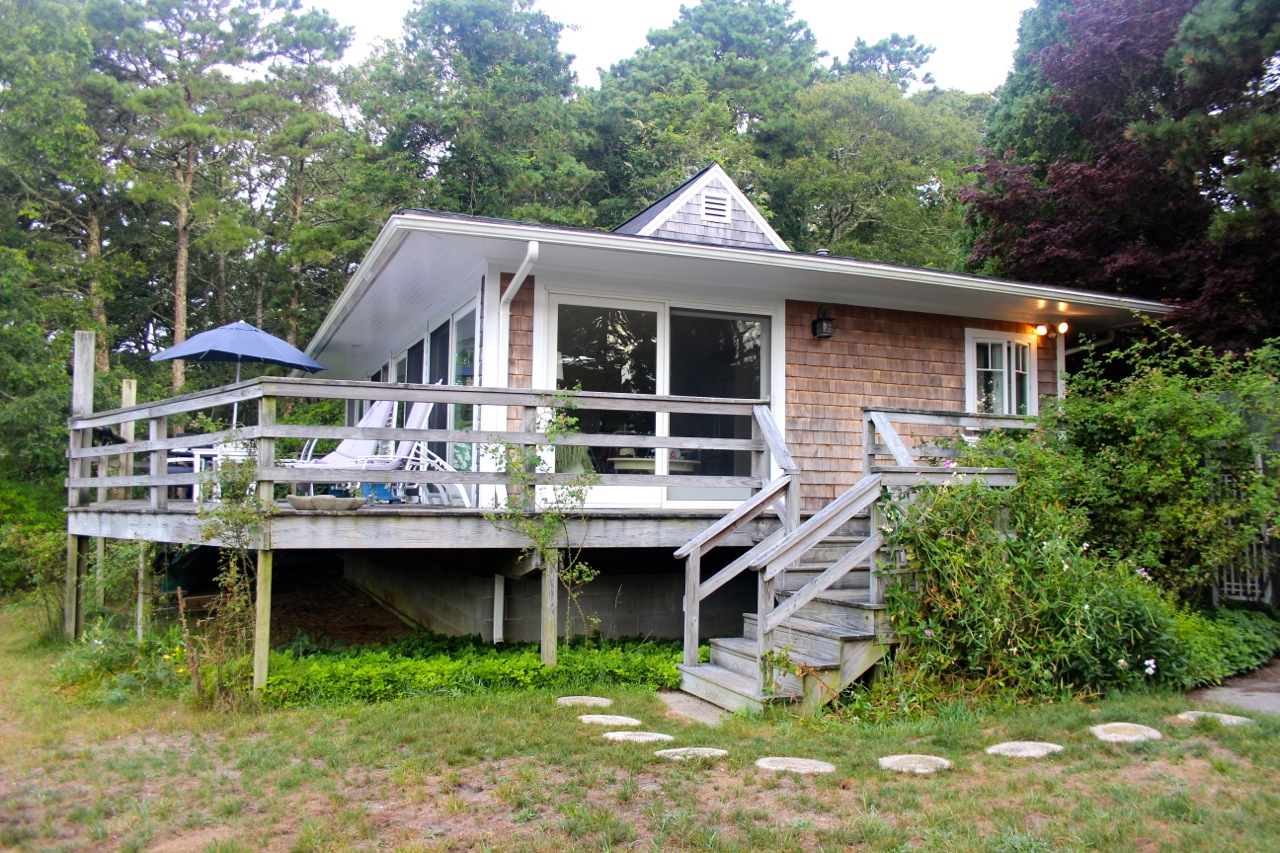 How does home exchanging through sites like Love Home Swap or HomeExchange.com work?
How does home exchanging through sites like Love Home Swap or HomeExchange.com work?
Today I’m aiming to share a guide to everything you need to know about home exchanging and home swaps. We’ve now done around 15 home exchanges and every time I post one of our travels, someone asks a question. So here are all the questions I get asked about home swaps most often, and the answers!
If you’re anything like me, you are desperate to travel. Like me, you may also be short on funds. Or you just want to spend your money on having amazing experiences, not for hotels and Airbnbs. Home Exchanging lets you travel at very little cost, by staying in other people’s homes.
A home exchange means that you agree to swap homes with someone in another part of the world. Although it sounds potentially all sorts of dodgy, home swaps are well established. They usually run through websites that offer all sorts of checks and protections.
We’ve been home exchanging now for just over a year. Whenever I talk about it, friends always have a bunch of questions. So i thought I’d put all our home swap tips and ideas into a blog post! Here is (pretty much) everything you need to know about home exchanging.
Table of Contents
Is home exchanging safe and secure?
The first thing to say is that home exchanges and swaps aren’t just something you do with a nice man you just met on Twitter.
There are well-established and reputable sites you can join to find people to swap homes with. You can swap in the UK, in Europe or virtually anywhere in the world. We are registered with HomeExchange.com, but other sites include Love Home Swap and Homelink. Home Exchange is the biggest of these sites, and has the most homes to register, but many people use two sites so they have more chance to find homes in their dream destination.
You can register on Home Exchange for free, browse listings and talk to other members. To actually arrange an exchange through any of these sites you’ll need to register as a member. This means paying an annual fee (we pay £150). You’ll also need to prove your identity. In our case this meant showing a utility bill that proved we lived where we claimed. I also needed to upload a copy of my passport. Lastly, our phone number and email details were checked and verified.


How do you find someone to exchange with?
To start exchanging you need to create your own home listing. This took me about 30 minutes, and was like creating a dating app profile for my house. You need to upload nice photos, show off your rooms, talk about the local area, and what facilities you have in your home.
Once your listing is complete, you can find a destination home. Sites like Love Home Swap are a lot like Airbnb. Plug in your preferred dates and locations, and the site will show you listings of homes that are available to you. It’s very straightforward.
Who would want to do a home swap with me?
Lots of us think we live in BORING places, I know. And lots of us think our houses are not great, or they’re too cluttered or not fancy enough to do a home swap.
Friends, this is not relevant. We’ve stayed in all sorts of places. Some are surgically clean and tidy, and others aren’t. We’ve stayed in 4 bedroom houses and places with swimming pools, and we’ve stayed in a one-bed flat where I slept on the sofa.
People share all sorts of homes for all sorts of reasons and people can see from photos if your house has more or less stuff, and make their choices accordingly. I find that so long as the house is clean, people care first and foremost about the location.
If you don’t live in an obvious tourist destination, I’m not sure it matters. I’ve had people ask to stay in our house for all sorts of reasons:
- A group of pensioners wanted to go rambling in the Ribble Valley (45 mins away) and needed a place to stay
- A family in Switzerland wanted to visit relatives they haven’t seen for 2 years, who live 5 minutes up the road
- Two families from London and Scotland wanted to get together in a big house, halfway between their homes
- A woman from Australia was looking for a house within an hour of the university her daughter was attending
How do you arrange a Home Exchange holiday?
The first step is to browse the site to look for properties in places you’d like to visit, as you would with any booking site. You can set up alerts, and add houses to your ‘favourites’ if you like the look of them.
Once you’ve found a house you would like to stay in, check their calendar for availability, and contact the owners to ask if they’d be interested in exchanging with you. At this point you can choose between two sorts of home swap:
- A reciprocal exchange means I stay in Amy’s house, and Amy’s family stays in my house. Usually this type of exchange is completely free.
- A points exchange means I stay in Amy’s house, but Amy doesn’t stay in my house. Instead, I “pay” Amy an agreed number of points per night, which Amy can then use to “pay” for an exchange in another home, somewhere else.
You and your exchange partner will usually confirm dates, number of guests and any special arrangements. We often chat to people over WhatsApp and do a little video tour of the house. It’s nice to get to know each other a little before doing an exchange.
How do home exchange points work?
You earn points when you register on HomeExchange.com and complete your profile. You will then earn more points if someone stays in your house and pays you with points (because you’re not staying at their house). We do this a lot when we go on a regular holiday – the house is empty and having someone pay with points means that the house is occupied AND we earn points to use at a later date.
Your home will be assigned a suggested points value when you register, based on the location, size and facilities. My house has 4 bedrooms and earns around 200 points per night. Most homes are somewhere between 100 and 300 points. Not all home swappers will accept points – some people only want to do simple swaps, and this will be indicated on their profile or calendar.
I used points to pay for four weeks of accommodation in the US for our road trip this summer, and for our second Christmas in Switzerland. I’ve even got points left over for another trip at Christmas.
How do I get free guest points?
If you sign up to HomeExchange.com using my referral code (Sally-86842) then you will receive a FREE gift of 250 additional guest points, including 100 points for creating a profile and 150 points for activating a membership.
This is in addition to the standard welcome Guest Points you’ll earn for registering on the site. If you do all the things the site asks when signing up you’ll get enough of these bonus points to book a short break. It’s great to use these points to try out the home swap experience without needing to offer up your own home for this first trip.
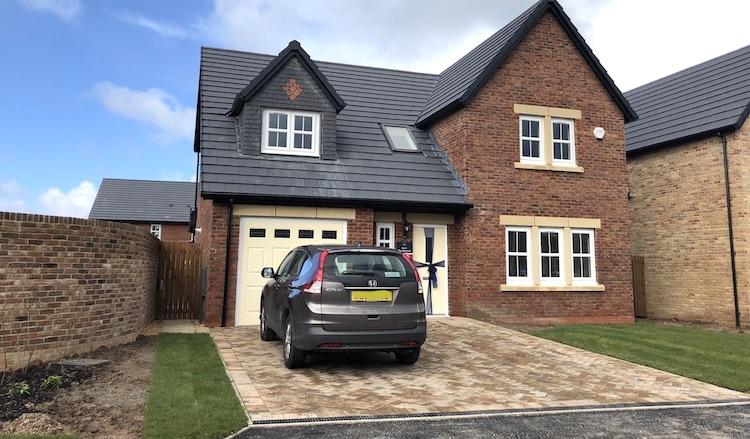

What’s it like to stay in someone else’s home?
We’ve stayed in Airbnb accommodation for many years, and booking a property through a site like Love Home Swap is really very similar.
The properties we’ve stayed in are just a bit more homely – typically when you do a home exchange the host will not put away all their personal belongings. So you can expect there to be books and games and tea and coffee in the cupboards. The host will clear some drawers and cupboards but you can expect some ‘stuff’ to still be around. That’s part of the experience – you’re living like a local in someone’s home, not a hotel room or rented apartment.
Personally, I love this. You get all the comfort of knowing if you need a pillow, it’s there. When we were in Switzerland, our hosts let us borrow some of their ski gear, which saved us money on rentals. In London, our hosts left us food in the fridge so we could eat when we arrived. And I love that you can cook without wishing you just had some garlic, or that you could get a decent pan or baking tray.
It’s actually kind of nice seeing people’s travel photos and decor, and their school activity planners.
Is it weird having strangers in your home?
In a word, no.
I’m sure if I thought about someone critiquing my kitchen cupboards or decor, I’d feel a bit weird, but I don’t dwell on that stuff. I don’t have a questionable dungeon, I’m not a serial killer, and the odds of there being anything in my house that would scandalise anyone is remote.
Most of the people who stay in your house have had people stay in THEIR houses, so I feel pretty confident that (so long as I’ve checked their reviews and spoken to them before the exchange) they’re normal people who won’t do anything weird.
We are fairly tidy people, but we make sure we aren’t going to outrage anyone. So we clean the house before each exchange, and if we aren’t home between two exchanges, then we have cleaners come in to make sure the house looks okay. We also bought bargain bedding in the IKEA sale that we use specifically for exchange guests. I mean – I’m laid back, but I’m not sharing my duvet with someone I don’t know.
We have always found the house is pretty much as we left it, once we get home. A few times you do wonder why your bowls are all on the wrong shelf, or what happened to the chia seeds, but nothing more than that.
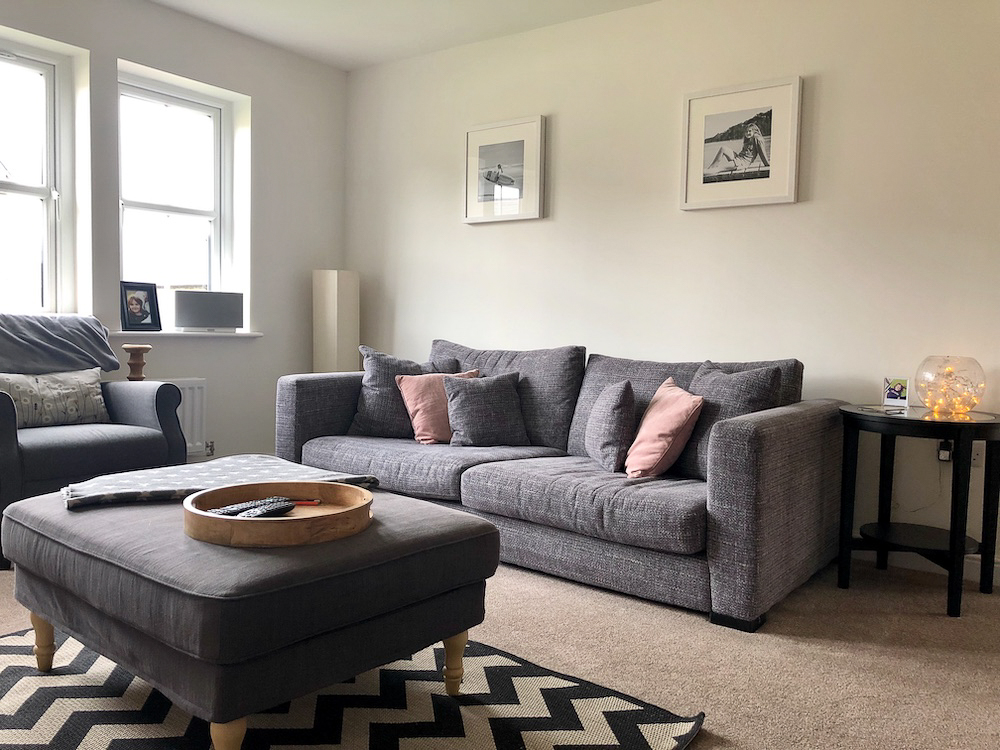

What do you do with your belongings when home exchanging?
Because this is home exchanging, not Airbnb, you can leave most of your stuff where it is during an exchange. If you haver kids, especially, your guests will probably be grateful of toys and books, and a well stocked video library. After a few exchanges, we’ve got into a nice routine when it comes to preparing to host a family in our house.
- If an exchange is for more than a few days, we clear out a drawer each, and some wardrobe space. We stick a little post-it note to let people know they can use that space. We put the clothes we’ve removed into a spare suitcase and stick it on top of the wardrobe.
- We then take a suitcase or box into the bedrooms and scoop up anything that is “out” on the surfaces that isn’t needed by the guests. We then put this suitcase, together with our laundry baskets, the dog bed and dog toys and put that in the garage.
- Next we make the beds using guest bedding and put out clean guest towels.
- We leave most other things as it is, but I do put all my business/financial paperwork and personal/confidential papers into a locked container, that can be stored under a bed.
- Lastly, I pack away my Twilight candlestick holders (pictured below) and put away jewellery in a locked box.
- We give a spare key to the neighbour just in case.
We probably spend a day (at most) before each exchange clearing our things away and preparing the house, like this. It’s actually a really quick job, and I’m over any weird feelings because hey, who doesn’t own an embarrassing pair of socks and some questionable DVDs? Besides, if someone is laughing at my choice of decor, I’m not there to see it because I AM ENJOYING MY FREE HOLIDAY.
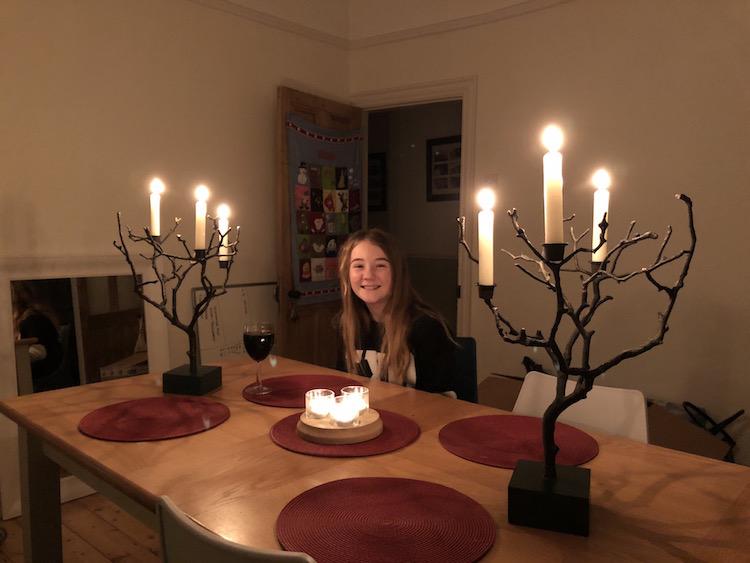

What if something goes wrong?
Naturally people are people and sometimes things go wrong.
For example, what if someone has to cancel an exchange at short notice? In this case the site will help you find an alternate exchange and if that’s not possible, they’ll pay you a credit towards regular accommodation in your chosen destination. But the advantage of dealing with people is you can discuss it between you, and maybe rearrange the exchange, or move it to next year.
The other risk is damage or theft of your property. I tend to think this is unlikely because most home exchangers are reliable, decent people (and they’ll have reviews on their profile you can check out). But accidents do happen. That’s why the exchange website will put a hold on your credit card until your exchange is completed. With HomeExchange this hold is $500, which is used to pay for damages if they happen.
If damage exceeds this amount, part of the membership benefit is an insurance policy against any damage, theft or loss during exchanges. The credit card hold is released by your host once your stay is over.
Why Home Exchanging is Brilliant
I honestly love the idea of home exchanging. You get to talk to the family you’re exchanging with in the weeks and months leading up to the swap, so you can ask for advice, share tips and get a “feel” for their family. After the exchanges we’ve hosted, families have left us lovely notes and gifts, thanking us for helping them to get together with relatives for the first time in two years.
And for us, home exchanging means we can afford to stay in places that would otherwise potentially be out of reach. We’ve done two exchanges in London giving us fun short breaks, and an exchange in Edinburgh so Flea could visit the university there. This summer, we’ve planned a series of home exchange stays in the South of the USA where we’re planning a road trip.
For the last two Christmas holidays, we have exchanged homes with a family in Switzerland for a week. The family were British ex-pats who hadn’t seen their family in two years. Luckily for us their relatives live iust down the road from our house. Even luckier for us, they lived in a ski chalet on the side of a mountain with amazing views, a five minute drive from the local ski resort.
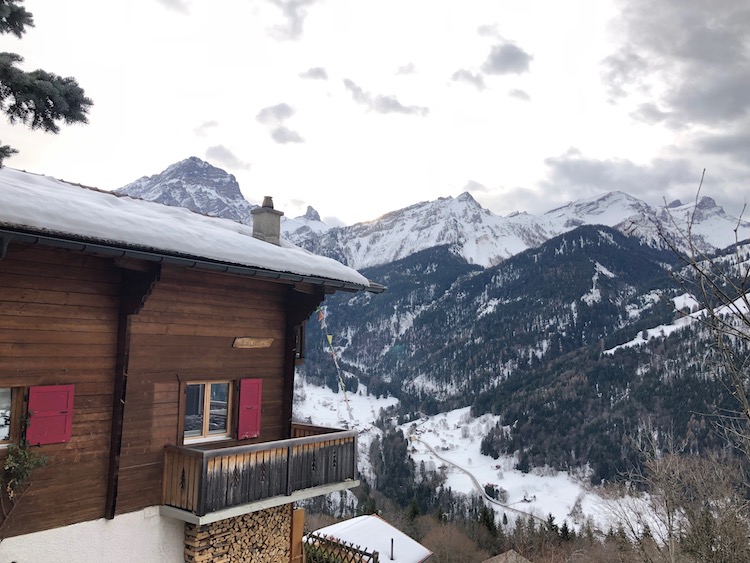

We could never have afforded to pay for a ski holiday at Christmas. But doing a home swap means no accommodation costs, and having a fully kitted out kitchen where we can prepare meals, and hang out. It meant we had a Christmas tree and decorations, a kitchen for Christmas dinner, and Netflix for entertainment.
Our hosts were also really helpful, advising on the best and most affordable places to eat, ski, sledge and more. We managed to get an amazing holiday for the cost of two budget flights and a week’s car hire – around £500.


Top Tips for Home Exchanging:
Based on our experiences, here are some tips for your first home swap:
- Don’t assume your house isn’t “posh” enough. We live in a tiny village in a fairly typical new house. We probably get a new message every month from someone wanting to stay in our location. People who home exchange want the location first, and somewhere clean and comfortable, second.
- Don’t assume you need to be in a city, or close to the beach. You never know why someone might want to visit your home town – it could be for a job, to see family, or explore a niche hobby. One of our hosts had previously hosted the son of another Home Exchange family, when he was doing a medical school placement at the local hospital.
- You don’t need to empty out your house when home exchanging. People who home exchange want to stay in a regular home. By all means pack away valuables. But it’s okay to leave most of your clothes, books, food etc in their usual spots.
- Do be prepared to invest some time in finding people to exchange with. The odds of one person being happy to swap with you, at the same time you want to swap with them, is quite low. On average, you’ll need to contact about 10 people to find someone who wants to swap homes with you.
- Take the time to register with the site and adjust your preferences so you can only be contacted by ‘verified’ members. This means someone has taken the time to check their identity and location, so there’s less chance of something going wrong.
- After arranging an exchange, keep in touch with your guests/hosts. Our hosts in Switzerland sent me WhatsApp messages each week with photos showing the mountains as winter approaches – we have a little chat, and it’s helped us to find the best activities for our visit, as well as our hosts offering to loan us skis and boots for Flea.
- If you’re hosting a family, prepare a simple guide to your home/area. Leave instruction leaflets in clear view. If you can’t meet your guests in person, leave a mobile number for any questions.
- Be clear about what you would like at arrival/departure. When we arrived in Switzerland, our hosts had left milk, bread, food for sandwiches, pasta and some other essentials, which was great. They also left details of where to leave bedding and rubbish/recycling when we left, which was really helpful.
So there you have it – our ultimate guide to home exchanging and how to arrange a home swap that’s safe, secure and affordable. Still got questions about home exchanging? Let me know in the comments!









Thanks for sharing a really helpful article on your Home Exchanging experience. Really useful to have access to that personal and practical experience.